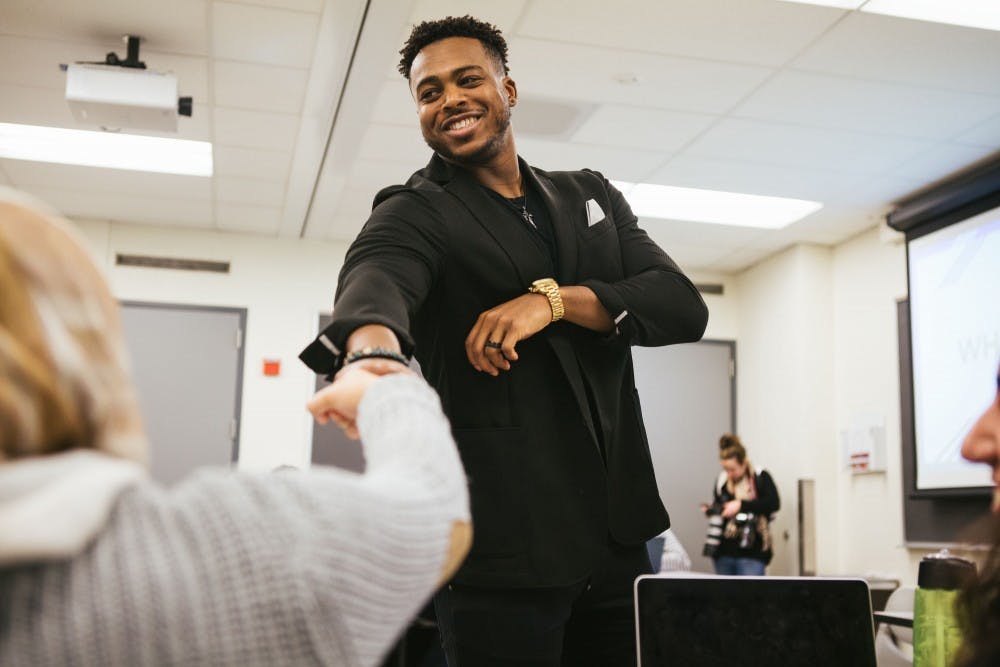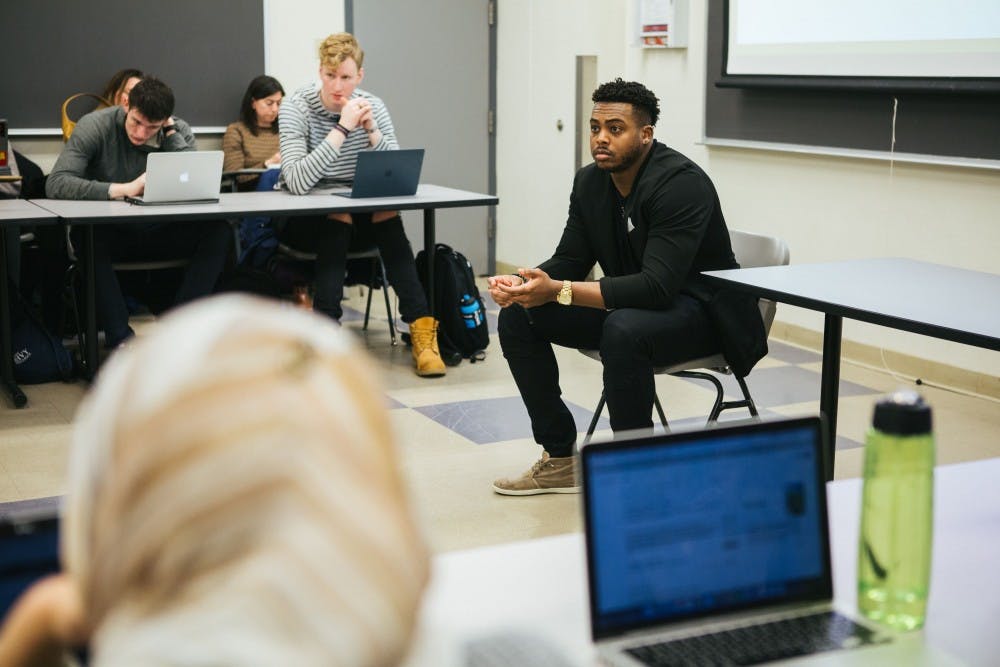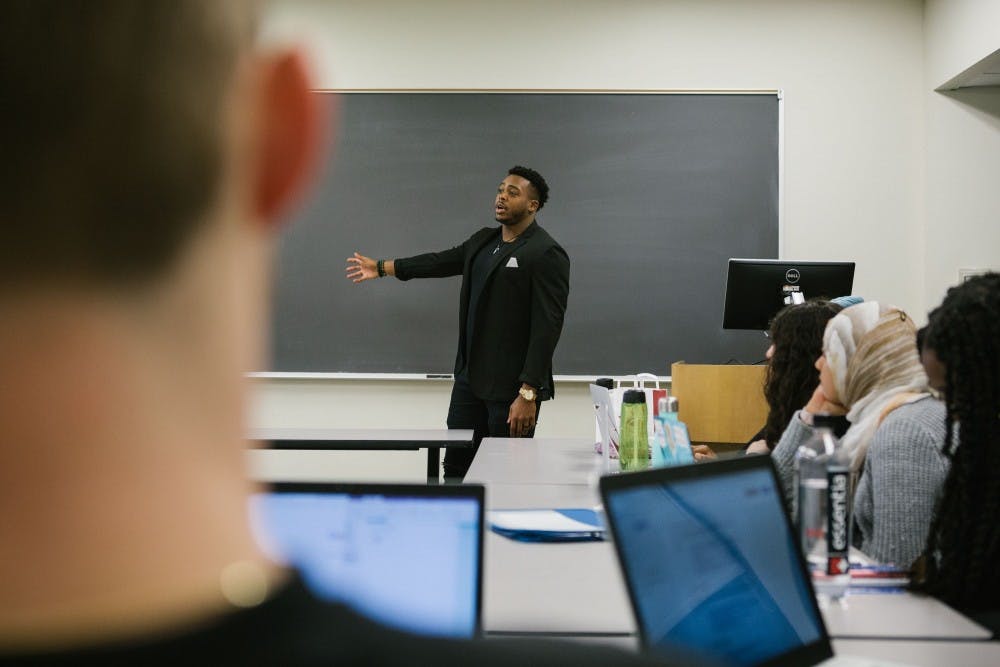
2013 Wharton graduate Brandon Copeland, linebacker for the New York Jets, teaches the course “Inequity and Empowerment: Urban Financial Literacy” every Monday at Penn this semester. (Photo from Brandon Copeland)
Every Monday evening, students taking URBS 140 study personal finance with an NFL football player.
The course is co-taught by 2013 Wharton graduate Brandon Copeland, a linebacker for the New York Jets, and is titled “Inequity and Empowerment: Urban Financial Literacy." Copeland is joined by Brian Peterson, who received a doctorate from the Graduate School of Education in 2013 and now serves as director of the Makuu Black Cultural Center. The course is being offered for the first time this spring semester.
Students currently enrolled said they appreciate the class for its practical life lessons and pragmatic approach to personal finance. They highlighted the course's small, discussion-based style and said it covers skills that are important for every Penn student to have.
“[Copeland is] an amazing teacher; he’s very comfortable with talking to us,” Wharton freshman Jadah Daley said. “He wants us to share our stories and for us to be active participants in the class."
Daley added that the class has changed the way she thinks about finance and money.
“I realized how much of this information I’m going to be able to use in the future,” she said. “[I’ve learned] how saving money is really important. It’s better to start earlier than later."
Copeland, who works in real estate and on Wall Street, said the course is designed to provide students with the knowledge to empower themselves financially and understand the context behind their decision making. During the three-hour class, Copeland lectures about a practical aspect of personal finance and discusses the societal and historical issues that underlie financial inequality.
“My focus in the class is on the inequities, and the connections to wealth growth and financial literacy,” Peterson, who also received a bachelor's degree in the School of Engineering and Applied Science in 1993, and a master's degree in 1997 from the GSE, wrote in an email to The Daily Pennsylvanian. “It’s important for all of our students to understand that it’s not just a willful financial illiteracy or a ‘poverty mentality’ but deep and cumulative structural impediments that restrict access to resources and opportunities."

Copeland said the course is designed to provide students with the knowledge to empower themselves financially and understand the context behind their decision making. (Photo from Brandon Copeland)
Many students said they would recommend the class to their friends, no matter what school they are in. The course has no prerequisites and is open to all Penn undergraduates. Copeland said he hopes to offer the class every spring but cannot be certain that's possible due to his athletic schedule.
"There hasn’t been any other class that kind of gives you the basics of doing your taxes, even like retirement funds — things that you need to know once you graduate,” Engineering senior Lamis Elsawah said. “It's just more real.”
To create the course, Copeland said he drew from his own experiences with financial decisions he made as a professional athlete and an investor, adding that he chose the topics based on knowledge he wished he had before.
“My goal for [the class] is for the students to be able to approach these major life decisions with confidence and clarity,” Copeland said. “A lot of people just, well, we learned this stuff when it’s too late. And you’ve already made the big mistake. My goal is to help these kids avoid those mistakes.”
While enrollment was initially capped at 20 students, Copeland said 180 students requested the course on Penn InTouch last fall, prompting him to add 10 additional slots for seniors.
He added that he has set aside some sessions as “open classes” for anyone in the local community to attend, ask questions, and join the discussion. Copeland has also assigned a project for his students to go to a local high school and teach students the financial skills they have learned.

Copeland set aside some URBS140 classes as “open classes” where anyone in the local community can come in, ask questions, and join the discussion (Photo from Brandon Copeland)
The Daily Pennsylvanian is an independent, student-run newspaper. Please consider making a donation to support the coverage that shapes the University. Your generosity ensures a future of strong journalism at Penn.
Donate







